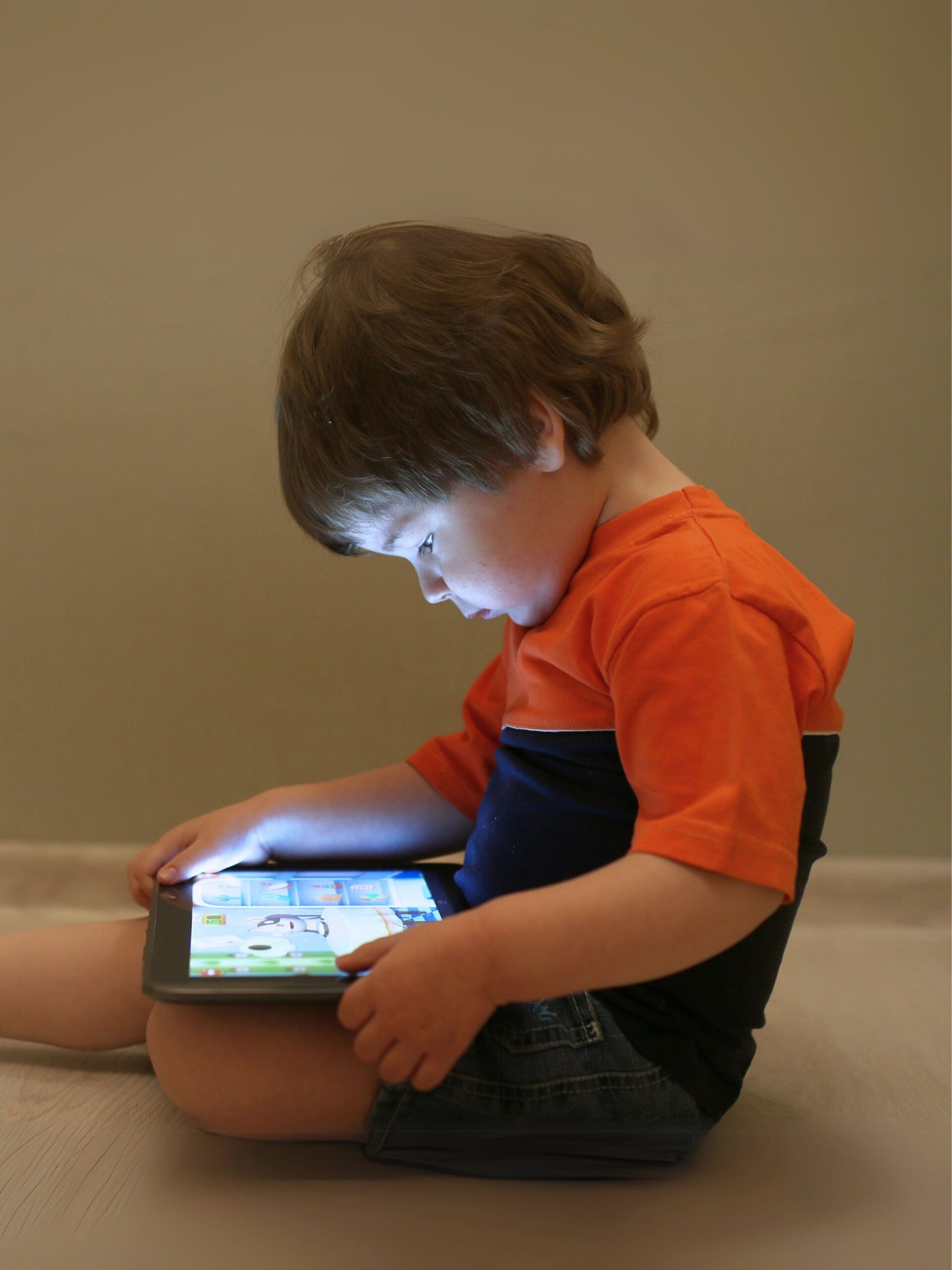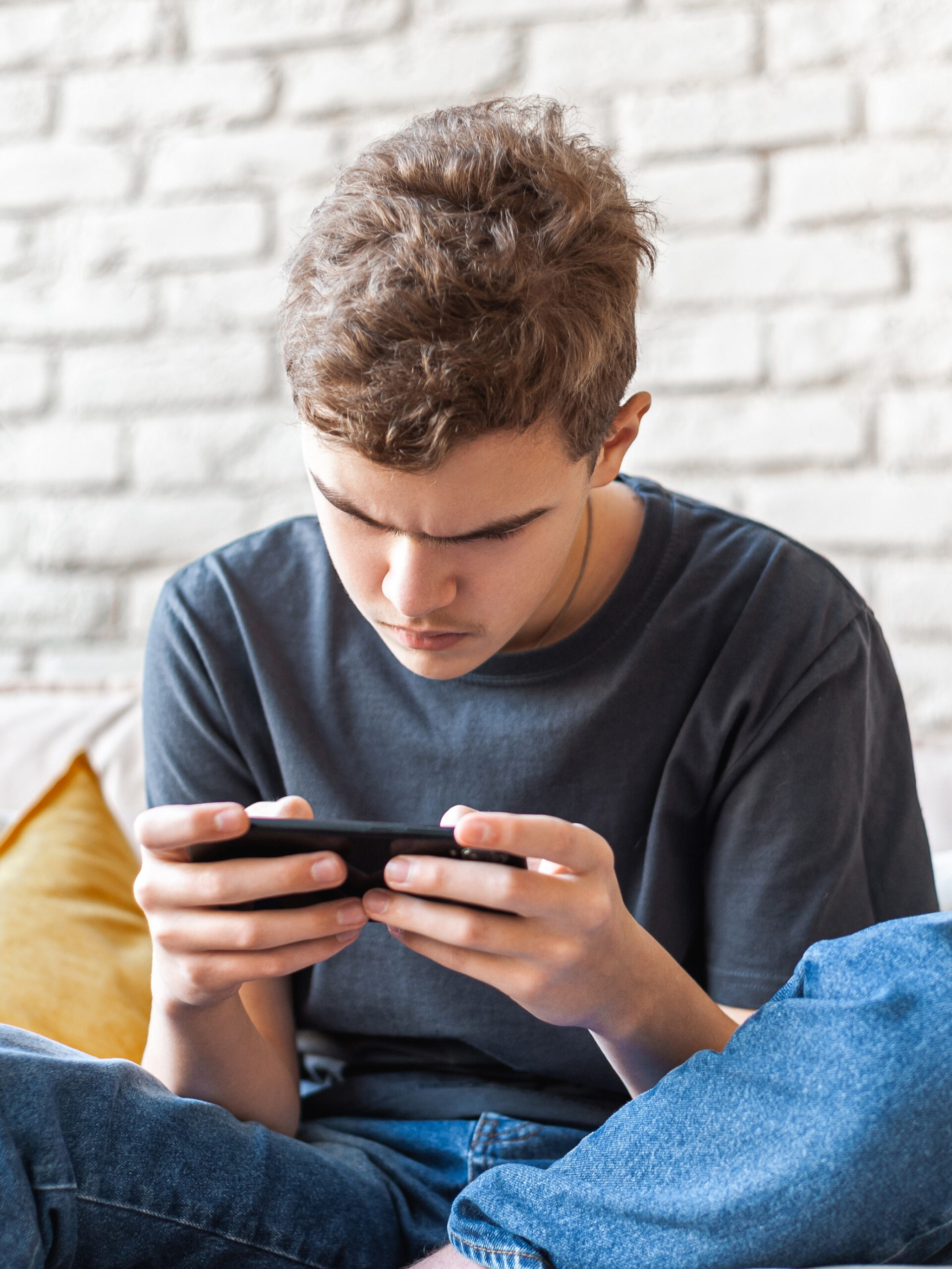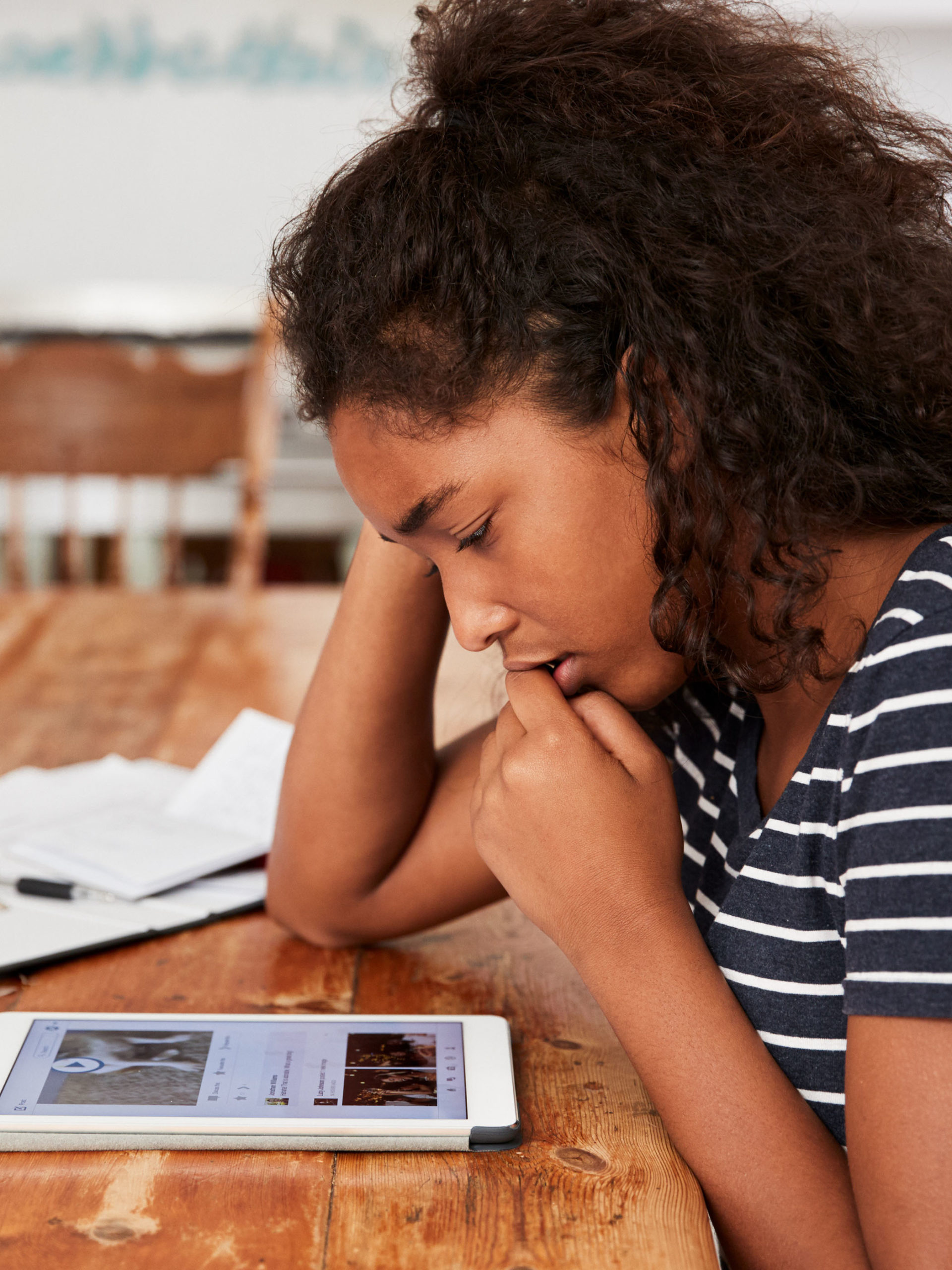MENTAL HEALTH GUIDE
Social Media
Although technology can benefit children’s social relationships, social media use and excessive screen time raises important concerns about emotional well-being and online safety. Below are some tips to help your child develop safe, healthy habits for social media use.
Crisis Resources
If your child expresses thoughts of wanting to harm themselves or others, call 9-1-1 or visit the nearest emergency department.
988 Suicide and Crisis Lifeline:
Call 9-8-8
Text any message to 9-8-8
Chat online at 988lifeline.org/chat
Crisis Text Line:
Text “HOME” to 741741
Save for later
Download, print or share on social media.
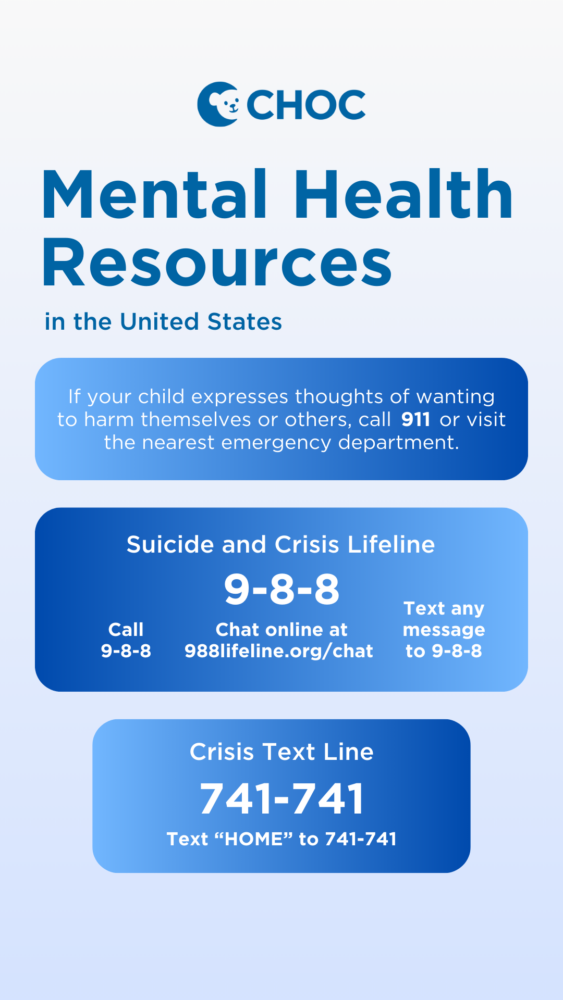
External Resources
American Psychological Association
Promoting healthy technology use for children
Child Mind Institute
Media Guidelines for Kids of All Ages
Healthychildren.org
Family media plan and media time calculator
Healthychildren.org
Dangerous internet challenges
The New York Times
How to use TikTok’s parental controls
YouTube
Parent resources for YouTube
Facebook
Safety resources for parents
Instagram
Parental guide for teens on Instagram
Learn more about CHOC’s pediatric mental health services
At CHOC, we specialize in providing a full spectrum of pediatric mental healthcare, including inpatient, intensive outpatient and outpatient program services.
Get 24/7 advice from CHOC
Children and social media: An overview
The American Academy of Pediatrics (AAP) recommends that parents of kids and teens place consistent limits on media use for both educational and entertainment purposes. Screen time should not replace time needed for sleeping, eating, being active, studying and interacting with family and friends.
Why are kids drawn to using social media?
Kids use social media to share experiences, gain approval from others and develop peer relationships. They also use it to develop their own identity, which is normal during adolescence.
Over 65% of teens spend more than four hours on their phone daily. This means that instead of in-person connection, some children and teens are becoming reliant on social media content to connect with others. Kids often feel drawn to using and posting on social media excessively simply because the kids around them are, too.
How is social media affecting kids?
It replaces in-person connection. Social media can be difficult to navigate with kids and teens. More and more, kids are relying on social media as primary means of connection, rather than in-person connection.
It teaches kids to generalize. On social media, kids and teens see a snapshot of someone else’s experience. Social posts often lack context, so kids end up projecting their own context onto what they are seeing. Kids may assume that they don’t measure up to their peers or that their experiences aren’t what they should be. Kids may not understand that a snapshot is not a realistic portrayal of another’s life.
It can cause miscommunication. When connecting in person with friends, kids know how their friend reacts to what they say with verbal communication and body language. If there is a miscommunication, they can talk about it and move on. On social media, kids may not know how their peers truly feel or what they meant by their posts or comments because they are missing verbal communication and body language.
If kids receive a negative comment or message, they can go back and view it on social media again and again. Because of this, they may dwell on the negative message with every review — preventing them from coping or moving on.
Is social media bad for my child’s mental health?
Social media can be an excellent resource for exploring new ideas, staying aware of current events, promoting community with others and keeping in touch with family and friends.
On the other hand, social media can act as a hub for harmful or questionable content. It can lead to peer harassment, increased stress, anxiety, depression, misinformation, body image concerns and loneliness.
Is social media safe for my child?
There are certainly safety issues associated with social media, such as the risk of bullying; privacy concerns and oversharing; viewing and sharing inappropriate content; and the permanence of social media posts — meaning once something is posted, it can be impossible to take back.
Teens might be more inclined to participate in risky behavior online for both physical and emotional reasons. While their bodies and hormonal systems are fully developed, their brains are not.
It’s important for parents to have open communication about safe social media practices with their kids.
 Print this section
Print this section
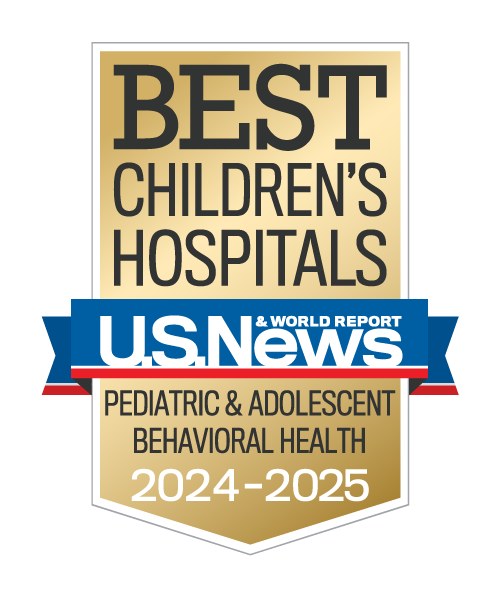
Learn more about CHOC’s Pediatric Mental Health Services
CHOC Hospital was named one of the nation’s best children’s hospitals by U.S. News & World Report in its 2024-25 Best Children’s Hospitals rankings and ranked in the behavioral health specialty.
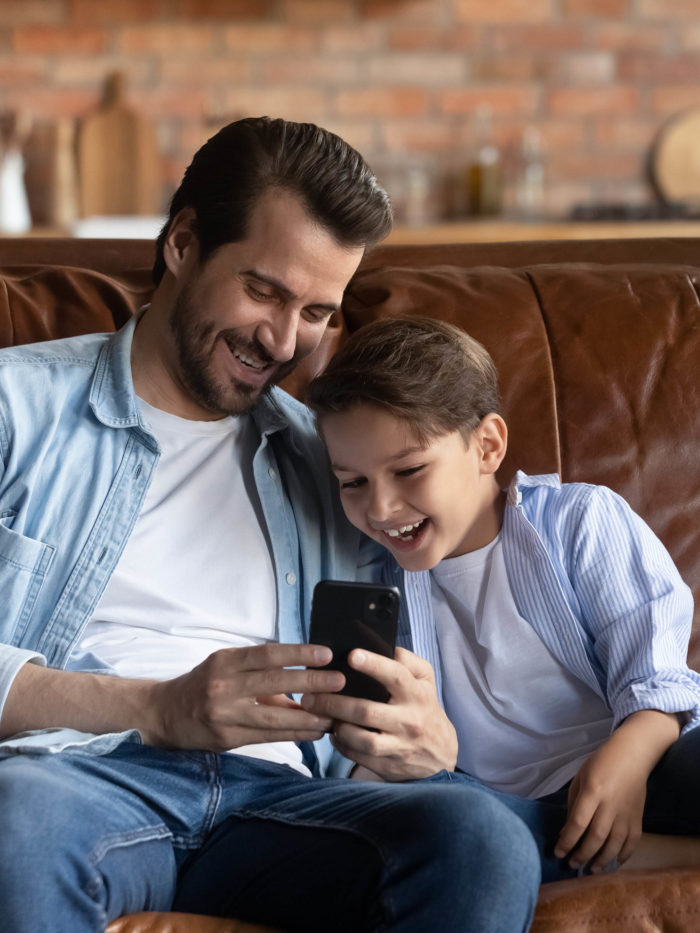
Social media tips for parents or caregivers of kids and teens
The use of social media has been associated with negative outcomes, such as peer harassment, sleep problems, depression and anxiety. In a recent survey, 64% of parents reported worrying about their child being exposed to inappropriate content and 34% indicated that their child spends too much time using social media sites. Here are some steps for caregivers to keep their child safe in the digital age.
Set boundaries with technology.
Establish the amount of time that your child can spend on social media each day so that it does not take the place of healthier activities.
For younger children, keep computers in a “public” location. Store phones and computers somewhere other than your child’s bedroom at night to prevent unsupervised use. For older children, have open, honest discussions about what sites they can access and what content is off-limits. Set up filters to restrict access to inappropriate content.
Let your child or teen know you will be supervising their social media use (but don’t “spy” on them). Active participation and communication are preferred over strict monitoring (e.g. using activity tracking applications or accessing their private messages), unless there are serious concerns about your child’s online activity.
Provide education about social media apps.
Ensure your child knows how to block and report users. Talk to your child about the risks of location tracking and sharing and help them turn off location settings. Review with your child each application’s privacy settings so that they understand what is private and what is public. Remind your child that everything that they share, even privately, is likely to be permanently accessible.
Talk about consequences.
Talk with your child about inappropriate or unsafe online behaviors, such as sending hurtful messages, posting personal information or sharing explicit material. Walk through how these behaviors can lead to real-life consequences both now and in the future. Discuss how online messages can easily be misinterpreted both by your child and by others, as you can’t rely on tone of voice or facial expressions to help you understand the intentions and feelings of others. Model the digital behavior you expect from your children or teens.
Look at social media with your child.
Spend some time reviewing social media with your child. Walking through it together can open up conversations about safety and misinformation and also be a way for you to understand how your child is using social media.
Report cyberbullying.
Encourage your child to come to you if they witness cyberbullying or other troubling information online. If cyberbullying involves a classmate, report it to the school’s principal and/or the school superintendent. Report all threatening messages to the police and document any text messages, emails or posts on websites.
Be mindful of your child’s developmental level.
Many social media websites have an age minimum of 13 to ensure that younger children are not accessing inappropriate content. Do your research and understand the media your child is using and how they are using it. Know the audience (younger children, teenagers, adults) and purpose (educational vs. recreational) of each platform before allowing your child to create a profile.
Watch for red flags.
Children and teens will misuse social media. Be empathetic and use this opportunity for teaching. However, if your child is involved in sexting, bullying or posting self-harm images, be sure to intervene early and enlist professional help if necessary.
 Print this section
Print this section
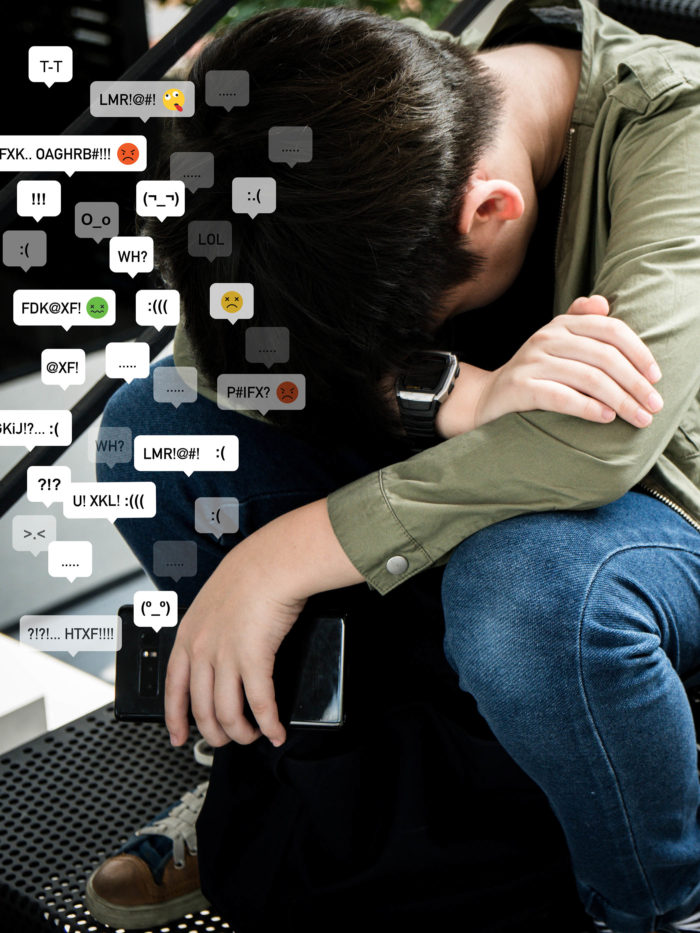
Social media tips for kids and teens
Social media can be a fun but dangerous place. To protect yourself from being exploited, bullied, disrespected or tricked, it is important to follow some important rules for social media safety.
Follow the rules.
Be honest with your parents about the apps you download and the content you access. Adults can help protect you from predators and from content that might be inappropriate or dangerous.
Think before you post.
Do not post or share messages, pictures or videos that you would not want the world to see. You cannot control how information is shared by those who see it, even if you post it privately or later delete it. Remember that you can never permanently erase something that has been published on the internet. You could face consequences later on in school, college interviews or job applications, for example.
Be aware of your privacy settings.
Make sure you know who can see what you post. The safest choice is to allow only your friends to see what you post. Always disable location services. Although it can be fun to let your friends know where you are, this also allows people with bad intentions to know how to reach you. Never share your passwords with anyone other than your parents.
Be cautious of requests by strangers.
Play it safe and only accept friend requests from your real-world friends. Do not agree to meet strangers offline. Never give away your phone number, address or other private information.
Be kind.
Remember that online communication does not allow you to tell how others are feeling. Just like you can’t see others’ faces and voices via social media, they can’t see yours. Make sure that what you write cannot be misinterpreted. Be respectful of others’ posts, even if you don’t agree with them. If you wouldn’t say something to someone’s face, don’t say it online.
If you are being cyberbullied, reach out.
Tell an adult you trust, such as a parent, teacher or school counselor, if you or anyone you know is being cyberbullied. Do not delete any communications. Save all screenshots and emails so you can show an adult. Block the person who is harassing you and make copies of all communications, if needed.
Avoid overusing social media.
It’s easy to get “sucked in” on social media and spend much more time than you intended to on it. But when people spend a lot of time on social media, they are at a higher risk of experiencing negative effects. That can include disrupted sleep or what researchers call “Facebook depression,” or low self-esteem from comparing yourself with others you assume to be “better off.” Spend quality time offline as well. Setting a timer or a time limit on your phone’s settings for social media apps can be helpful.
 Print this section
Print this section
Monitoring your child’s news and social media intake during national or global crises
Research shows that continual media coverage of community or health crises overexposes kids and teens to negative information, which can lead them to feel confused, overwhelmed and worried.
Set boundaries.
Excessive use of media is associated with negative psychological and physical consequences, including depression and obesity.
Set limits for daily use.
Encourage active interpersonal exchanges, such as video chats with same-age peers, and steer children away from using electronics solely for passive activities like scrolling or watching videos.
Be sure that your child is also spending time away from electronic devices, engaging in physical activity and enjoying other social and educational activities.
Model healthy consumption of media and reactions to news reports.
Talk with your kids about what they’re seeing about the news on social media. Often, social media shows sensational sound bites and only parts of a full story. This can be anxiety-provoking due to how it’s presented. Chat with them about what’s happening and use this as a time to provide some accurate information and reassurance.
Obtain critical updates from reliable sources once or twice a day; avoid sensationalism or repeated coverage of the same information.
Check-in with yourself.
Are you feeling distressed or agitated? If so, turn off the news and pursue other activities. Although some level of worry, confusion or sadness is to be expected during a crisis, if your child senses you are feeling overwhelmed and hopeless, they will be more likely to become emotionally dysregulated as well. React calmly and provide reassurance so that your child will follow suit.
 Print this section
Print this section
Avoiding dangerous internet challenges
Be aware of people who are looking for quick fame and how they may be influencing your kids. Increasingly, trendy online challenges — such as the “blackout challenge” or “Sleepy Chicken challenge” — are leading to injuries and poisonings. The American Academy of Pediatrics (AAP) suggests that parents help their kids and teens build intellectual muscle and consider the consequences of dangerous internet challenges.
Start the conversation.
Ask your kids about the so-called “challenges” they’ve heard about in their circle of friends and what they think about them. Calmy and without judgment, help them assess the risk of this challenge by talking about what could happen to someone who tries it.
Asking questions about school trends, friends and fads may yield more answers than direct questions about their own activities.
Consider the outcomes.
If your child mentions an interest in participating in a challenge, use open-ended questions to encourage them to think through each step of the challenge. Ask them to consider the worst outcomes. You can still exercise your parental options, such as limiting contact with certain kids or making specific activities off limits.
Be sure to “friend” your kids on social media.
Staying in touch on their preferred communication platforms can help you stay informed with what goes on in their day-to-day lives. Watch their stories for clues about what is going on in school and with their friends. Let your children know that they have to friend you in exchange.
 Print this section
Print this section
Learn more about CHOC’s Pediatric Mental Health Services
CHOC Hospital was named one of the nation’s best children’s hospitals by U.S. News & World Report in its 2024-25 Best Children’s Hospitals rankings and ranked in the behavioral health specialty.
Social media recommended reading
 Print this section
Print this section
Related guides
For more information on other mental health conditions that can be aggravated by excessive or dangerous social media use, please visit our other mental health guides.
Additional Resources
Recommended Books for School-Age Children
- Cell Phoney Paperback, Julia Cook and Anita DuFalla
- The Technology Tail, Julia Cook and Anita DuFalla
- Bullying Is a Pain in the Brain, Trevor Romain and Steve Mark
- Stand Up to Bullying! (Upstanders to the Rescue!), Phyllis Kaufman Goodstein and Elizabeth Verdick
Recommended Books for Parents
- iGen: Why Today’s Super-Connected Kids Are Growing Up Less Rebellious, More Tolerant, Less Happy–and Completely Unprepared for Adulthood, Jean M. Twenge
- How to Talk So Kids Will Listen & Listen So Kids Will Talk, Adele Farber and Elaine Mazlish
- Social Media Wellness, Ana Homayoun
- Reclaiming Conversation, Sherry Turkle
- Screenwise, Devorah Heitner
Related Articles
The guidance on this page has been clinically reviewed by CHOC pediatric experts.
For more health and wellness resources from the pediatric experts at CHOC:
Sign up for the Kids Health newsletter.
The contents of this webpage, including text, graphics, audio files, and videos (“Materials”), are for your general information only. The Materials are not intended to substitute qualified professional or medical advice, diagnoses, or treatments. CHOC does not recommend or endorse any specific tests, physicians, products, procedures, or other information that may be mentioned on or linked to this webpage. Always call your physician or another qualified health provider if you have any questions or problems. If you think you may have a medical emergency, call your doctor, go to the nearest emergency department, or call 911.
For more health information for your family visit health.choc.org




